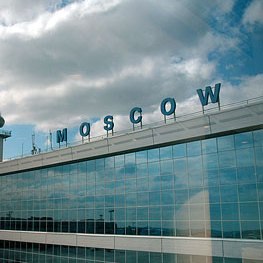(by Olga Gulina) The Russian dream to travel to the EU without visas will most likely not come true soon. Honestly, the first reaction of European politicians to Moscow’s insistence on giving free entrance to Europe for a legion of Russian bureaucrats was even too mild and accommodating.
EU Commissioner Cecilia Maelstrom often spoke about efforts that the EU and Russia need to apply to prevent “a looming stalemate in the negotiations on visa liberalization.” Yet gradually the tone in Brussels has changed—from the pathetic question of “how to facilitate the EU-Russia visa regime” to the realist suspicion that “the EU plays by Putin’s rules,” or even to harsher statements that “the EU shouldn’t reward increasingly repressive Kremlin with visa deal.”
Nevertheless, expectations from the Russian side remained extraordinary high. Russian officials announced that they are still in discussions on the quantity of “service passports” holders who might get the privilege of travelling to Europe without permission. According to the available information, the list could be as long as 150,000 people, which is less than 200,000 considered from the outset. Not all of the EU’s politicians have shared Russia’s enthusiasm, and liked this perspective even less.
Evidently, the EU’s policy toward Russia is dominated by Germany, who was and remains one of the most approachable European partners for Moscow. Earlier, the German government appeared—though reluctantly—to agree to sign a new visa-facilitation agreement with Russia and thus make a step toward visa-free travel. Yet the EU-Russia summit held in Yekaterinburg in June 2013 has shown that the wind is changing. German officials were not willing anymore to unconditionally continue in this direction.
Volker Beck, a parliamentary deputy from the Green Party, insisted on travel restrictions for Russian “nomenklatura and Putin’s loyalists who orchestrate oppression” so that they “should not get the privilege of walking on boulevards in Western cities with pockets full of ‘corrupt’ money.”
Andreas Schockenhoff, Vice-President of the CDU/CSU and parliamentary coordinator for civil society dialogue between Russia and Germany, claimed that “our priority is a facilitated visa regime for students, journalists and scientists,” instead of “visa-free travel support for Putin’s followers.”
The euphoria of the Russian bureaucracy dreaming about open borders to Europe appears to have come to an end. There are a lot of reasons for this, beside the political and normative disconnects between Moscow and Berlin. One of them is the growing amount of refugee and asylum applicants coming from Russia to Europe, and in particular to Germany.
According to the data of the Federal Office for Migration and Refugees (BAMF), the majority of potential immigrants in Germany are Russians (10,163), distantly followed by Syrians (4,517) and Afghans (3,448). The growing Russian nationalism that is visible in the political rhetoric of Russian opposition politician Alexei Navalny and his followers further reinforce the concerns of European politicians about potential migration flows from Russia.
Many Germans have tended to see Russia as an emerging democracy struggling with the nefarious heritage of centuries-long centralized and autocratic rule. Nowadays some of them seem to be reconsidering this.
Russia voluntarily detached itself from the EU’s neighborhood, and is not likely to move closer to the European normative order in the years to come. Frank Walter Steinmeier, a former foreign minister of Germany, once confessed that, “to teach Russia democracy is a hopeless task.” Perhaps this explains why Russian public servants working for the Putin regime won’t be getting free gifts from the EU.
Guest post by Olga Gulina invited by Andrey Makarychev, professor at the Institute of Government and Politics, University of Tartu.
See also: The Dual Citizenship Topic in Germany (by Olga Gulina)










